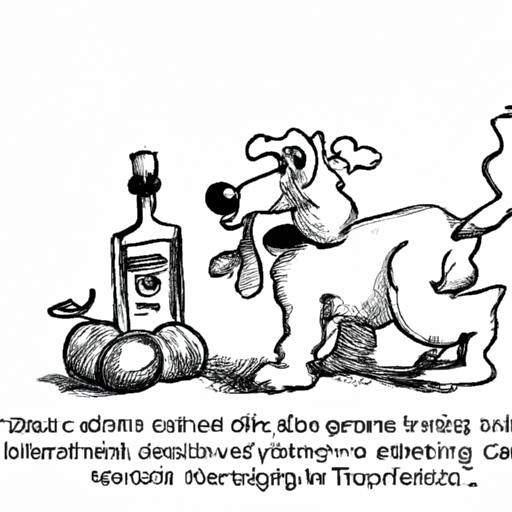1. Introduction
You love your furry friend unconditionally, but sometimes their antics and behaviors can leave you puzzled. Let’s delve into one of the most intriguing aspects of canine behavior – their sense of smell. The canine olfactory sense is incredibly powerful, with a dog’s sense of smell estimated to be between 10,000 to 100,000 times more potent than ours. This heightened sense can make certain smells unbearable to them. But what are these smells that dogs despise?
2. Smells Dogs Find Unpleasant
Dogs’ noses are discerning, and they can react negatively to a variety of smells. Here’s a list of the most common ones:
- Citrus: The strong smell of lemons, oranges, and grapefruits can be too much for many dogs.
- Vinegar: Its acidic nature and potent smell can be off-putting for dogs.
- Hot peppers: Capsaicin, the compound that gives peppers their heat, can irritate a dog’s sensitive nose.
- Mint: Whether it’s peppermint or spearmint, dogs tend not to be fans of this fresh scent.
- Chemical cleaners: Harsh cleaning products can be a sensory assault for dogs.
3. Using Unpleasant Scents for Training
Knowing what smells dogs dislike can be a powerful tool in your training arsenal. Not only can these scents deter unwanted behaviors, but they can also protect your dog from potentially harmful situations. For example, using a vinegar-based cleaner can deter your dog from chewing on furniture, while citrus scents can keep them away from dangerous areas.
| Smell | Use for Training | Caution |
|---|---|---|
| Citrus | Deter from danger zones | Avoid eyes |
| Vinegar | Stop furniture chewing | Dilute first |
| Hot Peppers | Deter from garden | Avoid eyes |
| Mint | Training commands | Use sparingly |
| Chemicals | Avoidance training | Use safe cleaners |
4. Safety Considerations
While these smells can be beneficial for training, always remember that your dog’s well-being comes first. Some smells might not only be unpleasant for your dog, but can also be harmful. Always use these scents in moderation, and never use them as punishment.
- Dilute strong scents to prevent irritation.
- Never force your dog to smell something they dislike.
- Be mindful of allergies. Dogs can be allergic to certain substances, just like humans.
5. Frequently Asked Questions (FAQs)
Q: Can I use citrus oils to deter my dog from certain areas?
A: Yes, but use sparingly and avoid contact with your dog’s eyes.
Q: Is it safe to use vinegar for training?
A: Yes, but it’s recommended to dilute it first.
Q: What should I do if my dog is allergic to a certain smell?
A: Stop using that scent immediately and consult with a veterinarian.
Q: Can strong smells harm my dog’s sense of smell?
A: Prolonged exposure to strong smells can potentially irritate a dog’s nose. Always use scents in moderation.
Caring for a canine companion comes with its share of challenges. But by understanding their dislikes, you can create a more comfortable environment for them, and even use this knowledge to enhance their training. Remember, every dog is different, so it’s necessary to observe your pet’s reactions to these smells and adjust accordingly.



